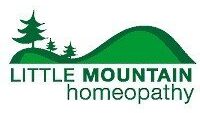About Acquired Brain Injury: Brain Injury Canada
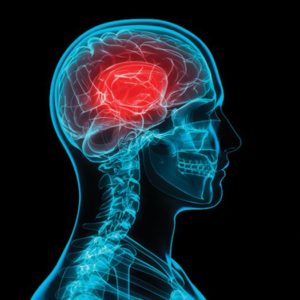
160,000 Canadians sustain brain injuries each year. Incidence (and reporting rates) are rising. Over a million Canadians live with the effects of an acquired brain injury. About 50% of all acquired brain injuries in Canada come from falls and motor vehicle accidents. Think First reports that thirty per cent of all traumatic brain injuries are sustained by children and youth, many of them while participating in sports and recreational activities. The incidence and prevalence of brain injury outnumbers breast cancer, spinal cord injury, multiple sclerosis and HIV/AIDs – combined.
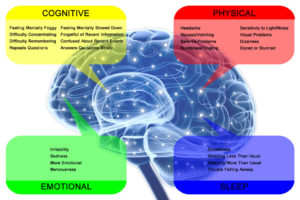
A concussion is a mild type of Traumatic Brain Injury (TBI), caused by a bump, blow or jolt to the head or body which causes the brain to move back and forth in your skull. Without attention, diagnosis and treatment, the damage to your brain does not have the opportunity to recover, and can easily worsen.
A concussion often changes the way your brain normally works and has a multitude of impacts on the rest of your body. The symptoms include:
• Amnesia.
• Confusion.
• Headache.
• Loss of consciousness.
• Balance problems or dizziness.
• Double or fuzzy vision.
• Sensitivity to light or noise.
• Nausea
• Feeling sluggish, foggy or groggy.
• Feeling unusually irritable.
• Concentration or memory problems
• Slowed reaction time.
Cleve McIntosh discusses head injuries and their homeopathic treatment
Recovery
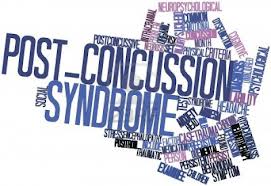
Many patients after mild head injuries will describe a number of symptoms which are collectively known as post-concussional syndrome. The symptoms are irritability, depression, anxiety, as well as headaches, dizziness, tiredness, poor concentration and difficulty sleeping.
In most people, these symptoms will go away without any help. However, the intensity and length of time before the symptoms resolve varies in different people. It is those sensations and symptoms which make one person distinct from another that are most important in selecting the correct homeopathic medicine.
Long-term difficulties
Although most symptoms resolve within a few months of a head injury, a significant number of people are left with long-term problems afterwards. Improvements in the emergency care of people with head injuries means more people surviving, sometimes with permanent and often serious emotional or neurological problems. The severity of long-term symptoms is related to a number of factors, including which part of the brain was damaged, how extensive the damage was and for how long after the injury the person had memory loss.
People with problems resulting from a head injury will sometimes be referred to psychologists, psychiatrists, neurologists, neurosurgeons, physiotherapists, and occupational or speech therapists. Most of these patients will also benefit from a referral to a homeopathic physician.
Intellectual impairment
Problems with “thinking” activities may persist after head injuries. These include:
- taking longer to process information;
- difficulties focusing attention and being easily distracted;
- forgetfulness and other memory problems;
- difficulties following instructions,
- organising and planning.
These may be so severe that such people may be severely learning disabled and unable to take care of themselves.
Emotional and personality changes
Less obvious and often more disabling than the intellectual impairment are the long-term personality and emotional changes after head injuries. Emotional changes include depression, euphoria, fearfulness, anxiety and an increased risk of suicide. Emotional problems may sometimes benefit from allopathic antidepressant medication.
Personality changes, especially when the frontal lobe (the part of the brain behind the forehead) is damaged, include apathy, obsessiveness, irritability, loss of motivation and spontaneity and even aggressive behaviour. Impulsivity and disinhibition, including sexually inappropriate behaviour, can also be a problem. Personality problems are extremely difficult and frustrating to treat with allopathic medication alone and homeopathy can help a great deal.
Physical problems
Mild long-term physical problems are fatigue and generally doing things more slowly. Some people have serious physical disabilities of all types, from blindness to an inability to walk.
Epilepsy is another common consequence of severe head injuries, and many will need long-term epileptic drugs. Unfortunately, despite the best allopathic epileptic drugs, some people still have frequent seizures or disturbing side-effects. Such people will often benefit quite dramatically from the addition of carefully selected homeopathic medication.
Unexpected Help for Victims of Traumatic Brain Injury by Larry Malerba
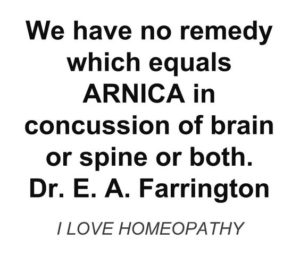
It is generally understood that there is no truly effective treatment for mild traumatic brain injury (MTBI), also known as concussion. Medical intervention focuses upon diagnosis, which involves history taking, physical exam and brain imaging technologies like CT and MRI. Conventional treatment, however, is limited to rest, symptomatic relief such as analgesics for headache, and continued observation after concussion to ensure that the condition of the patient does not deteriorate. In most cases of concussion there is no overt organic pathology. Unless a head injury involves detectable physical damage to the skull or brain, in which case surgery may be indicated, there is little else that standard medicine has to offer.
Any homeopathic practitioner, on the other hand, knows that not only is there very effective treatment for the acute phase of concussion but also for the long-term consequences of head trauma.
Clinical experience indicates that homeopathic medicines are quite effective in all stages of concussion and post-concussion syndromes. The homeopathic medicine, Arnica montana, is well known for its rapid and powerful healing capacity in many cases of physical trauma. Some surgeons prescribe it for their patients post-operatively and some sports teams use it routinely when athletes are injured. Arnica can minimize, stop, and reverse bleeding, swelling, and the effects of blunt trauma and can even be of benefit for internal injuries as is often the case with concussions.
Case Examples of the Homeopathic Treatment of Concussion presented by Dr. Ted Chapman

The first patient was a 34 year old woman who suffered brain trauma as a result of an auto accident. My first impression was that she seemed a pleasant and normal person, but as the interview progressed, her problems became more evident. She seemed to be in a mental fog and at times hesitated, trying to express how she felt, but not able to get the words out. After her accident, she was profoundly disabled. She went from being a desktop publisher to not being able to turn on her computer. The response of her allopathic doctors was to treat her problems with drugs. As new symptoms appeared, the number of prescriptions and doses of her drugs were increased. Eventually, she and her husband felt that drug treatment was not going to solve her problems, so she tapered off her drugs. Some of her problems were resolved by going off the drugs, but others remained. She suffered from tremors and headaches. Excitement or stress triggered her symptoms, which were usually worse the day after. Perfumes and odors could also trigger her symptoms. She was also worse from hearing other talk and from motion. She was impatient, needing to be on time for anything she did. She also was easily startled. At on point in the interview, the phone rang and she almost jumped out of her seat. Because of her heightened sensitivity to external sensations, her impatience and edginess, and also because of the history of allopathic drugging, she was prescribed Nux Vomica.
The second patient was a Haitian woman of about 40. She was also the victim of an auto accident, but was more profoundly affected than the first woman. She presented a dignified appearance, but was obviously suffering from a great deal of mental confusion. She would start cooking dinner on the stove and then wander off, forgetting that she was cooking anything until the smoke alarm sounded. She would put Ajax instead of salt on her chicken. She suffered from hallucinations, such as imagining smoke was coming out of her television. Objects would appear to change size, growing smaller and larger She felt she was not in her body, as if she were walking on clouds. As a result of her problems, she lost interest in life and wished to be alone. She also started easily and washed her hands frequently, up to ten times a day. This was a harder case to analyze then the first, but eventually Cicuta Virosa was prescribed, on the rubric “delusion, objects approach and recede.”
The third patient was an Orthodox Jewish woman of about 50. While taking her car to a dealer to be serviced, the garage door crashed on her head. Her first reaction was terror: she was afraid she was going to die. While recounting the story, she was still fearful. Her body was frozen, except for her eyes, which darted back and forth. Her husband took her to the emergency room, where the doctor diagnosed her problem as nothing serious, just a bump on the head. However, she began suffering a range of symptoms. She began seeing double, was dizzy, and suffered from poor balance. She suffered from headaches, feeling like her head was in a helmet a size too small. She became forgetful, especially when she became tired in the afternoon. She suffered from seizures, brought on by exposure to flickering light. She also suffered from overpowering sleepiness, dissociative states. Her eyelids drooped and felt heavy. She felt as if she were in a cloud. The prescription was Opium on account of the fearfulness, sleepiness, and Dis-associative state.
All three patients showed significant improvement after four months treatment.
Scientific Study
BACKGROUND: Mild traumatic brain injury (MTBI) affects 750,000 persons in the United States annually. Five to fifteen percent have persistent dysfunction and disability. No effective, standard pharmacological treatment exists specifically for this problem. We designed a pilot research project to study the clinical effectiveness of homeopathic medicine in the treatment of persistent MTBI.
METHOD: A randomized, double-blind, placebo-controlled trial of 60 patients, with a four-month follow-up (N = 50), was conducted at Spaulding Rehabilitation Hospital (SRH). Patients with persistent MTBI (mean 2.93 years since injury, SD 3.1) were randomly assigned to receive a homeopathic medicine or placebo. The primary outcome measure was the subject-rated SRH-MBTI Functional Assessment, composed of three subtests: a Difficulty with Situations Scale (DSS), a Symptom Rating Scale (SRS), and a Participation in Daily Activities Scale (PDAS). The SRH Cognitive-Linguistic Test Battery was used as the secondary measure.
RESULTS: Analysis of covariance demonstrated that the homeopathic treatment was the only significant or near-significant predictor of improvement on DSS subtests (P =.009; 95% CI -.895 to -.15), SRS (P =.058; 95% CI -.548 to.01) and the Ten Most Common Symptoms of MTBI (P =.027; 95% CI -.766 to -.048). These results indicate a significant improvement from the homeopathic treatment versus the control and translate into clinically significant outcomes.
CONCLUSIONS: This study suggests that homeopathy may have a role in treating persistent MTBI. Our findings require large-scale, independent replication.
